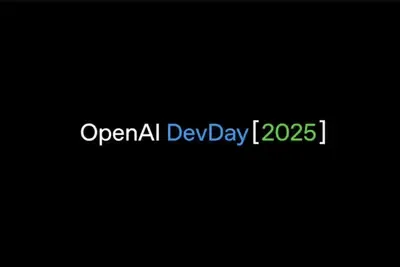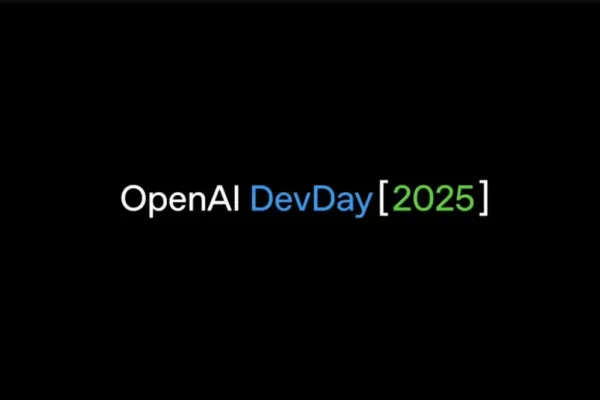

OpenAI’s DevDay 2025 marked a significant evolution in the company’s AI ecosystem, positioning ChatGPT not just as a conversational tool but as a fully integrated, multifunctional platform capable of hosting apps, running real-time interactions, and empowering developers with new toolkits. This year’s event, following two previous editions, presented a rich mix of product announcements and incremental upgrades, reflecting OpenAI’s continued push to expand ChatGPT into a comprehensive AI-powered operating system. Attendees and users learned that ChatGPT will now host third-party apps within its interface, introduce an advanced developer suite called AgentKit, and offer more cost-effective voice models, highlighting OpenAI’s strategy to make AI interaction more seamless, customizable, and accessible for a broad spectrum of users and developers alike. These updates underline a vision where AI tools are not isolated assistants but interconnected platforms facilitating real-time action, software development, and productivity enhancements across multiple industries.
ChatGPT Apps Integration: Transforming AI into an Interactive, App-Driven Ecosystem
One of the major announcements at DevDay 2025 was the integration of apps directly within ChatGPT, a development that significantly expands the utility of the AI assistant beyond standard conversational responses. Previously, users could interact with ChatGPT primarily through text or voice prompts, often relying on separate platforms to perform specific tasks such as music streaming, online bookings, or content creation. With the new in-chat app functionality, users can now launch and control third-party applications like Spotify, Zillow, Canva, Coursera, Figma, Booking.com, and Expedia without leaving the ChatGPT interface. This integration allows for a smoother, more cohesive user experience where natural language commands and voice inputs directly trigger app functions. For example, users can simply type “Spotify, make a playlist for my party this Friday” and ChatGPT will generate the playlist interactively, responding to follow-up instructions and even refining recommendations in real time.
OpenAI explained that these apps are designed to respond both to text and voice prompts while offering interactive interfaces within the chat window itself. This approach represents a significant leap in how AI can function as a central hub, bridging multiple services within a single conversational interface. Developers are provided with a new Apps SDK currently in preview, enabling them to build custom apps that interact seamlessly with ChatGPT. The SDK allows third-party developers to implement features such as interactive outputs, dynamic response handling, and embedded user interfaces, ensuring that the AI can act not only as a conversational assistant but also as a platform for actionable tasks. The integration is currently available to users on Free, Go, Plus, and Pro plans, with the exception of European Union users due to regulatory considerations. By embedding apps directly into ChatGPT, OpenAI has redefined user expectations for conversational AI, turning it into a multitasking hub capable of performing complex, context-aware actions without navigating multiple platforms.
This move aligns with a broader strategy to transform ChatGPT from a primarily reactive assistant into a proactive tool capable of enhancing productivity and efficiency across personal, professional, and commercial contexts. The interactive nature of the apps also opens possibilities for AI-driven commerce, education, and creative workflows, as users can request complex outputs, receive immediate feedback, and adjust parameters all within the same conversational environment. The integration of apps represents OpenAI’s vision of an ecosystem where AI is not just a digital interlocutor but an operational platform facilitating a seamless blend of communication, action, and decision-making.
AgentKit and Developer Tools: Streamlining AI Agent Creation and Deployment
Another highlight of DevDay 2025 was the unveiling of AgentKit, a comprehensive suite of tools designed to simplify the creation, deployment, and optimization of AI agents. AI agents are sophisticated systems capable of executing tasks autonomously, interacting with multiple applications, and responding dynamically to user inputs. Prior to AgentKit, developers had to rely on a fragmented set of tools, manually connect custom pipelines, fine-tune prompts, and perform extensive evaluation over several weeks to launch functional AI agents. With AgentKit, OpenAI offers a streamlined process that consolidates development into a cohesive, efficient framework. The toolkit includes features like automated prompt optimization, trace grading, dataset management, and integration of third-party models, allowing developers to measure and enhance agent performance with unprecedented precision.
AgentKit represents a shift in OpenAI’s approach to empowering developers. By providing a centralized framework for building AI agents, the company reduces technical barriers and accelerates deployment timelines. Developers can now design agents that perform complex, multi-step tasks, trigger other applications, and respond contextually to changing inputs, all within a single development ecosystem. The toolkit’s capabilities also extend to performance monitoring, enabling developers to identify bottlenecks, evaluate agent reasoning, and implement iterative improvements. These advancements reflect OpenAI’s recognition of the growing demand for autonomous AI systems capable of performing specialized workflows across industries such as finance, customer service, content creation, and software engineering.
In parallel with AgentKit, OpenAI made Codex, its AI-powered software engineering tool, available to everyone. Codex operates in a sandboxed cloud environment, capable of handling multiple coding tasks simultaneously. It can answer questions about a codebase, suggest pull requests, fix bugs, and integrate with platforms like Slack for enhanced team collaboration. Admin tools now include monitoring and analytical dashboards, providing actionable insights into coding workflows, bug resolution, and optimization strategies. Together, AgentKit and Codex exemplify OpenAI’s commitment to creating an end-to-end ecosystem where developers can seamlessly transition from building AI agents to integrating them into real-world applications, enhancing productivity, and leveraging AI as a co-pilot in complex workflows.
New Cost-Effective GPT Models and Real-Time Voice Capabilities
OpenAI also introduced two new GPT models designed for cost efficiency and specialized performance during DevDay 2025: GPT-5 Pro and gpt-realtime-mini. GPT-5 Pro is a high-capacity model optimized for deep reasoning, capable of handling extensive context windows up to 400,000 tokens and supporting a maximum output of 272,000 tokens. This model leverages advanced computational resources to deliver consistently high-quality responses, making it ideal for applications requiring detailed analysis, complex problem-solving, or extended conversational threads. GPT-realtime-mini, in contrast, is a compact variant of the Realtime model, offering a more economical solution without compromising essential AI capabilities. It provides a context window of 32,000 tokens and supports a maximum output of 4,096 tokens, making it suitable for real-time interactions, low-latency applications, and cost-conscious implementations. Both models are available via the Responses API, expanding accessibility for developers and businesses seeking flexible AI solutions.
The introduction of these models reflects OpenAI’s strategy to balance high-performance AI with affordability, enabling broader adoption across commercial, educational, and consumer applications. GPT-5 Pro, with its expansive context and reasoning capabilities, is positioned for demanding tasks that require in-depth understanding and multi-step problem-solving. GPT-realtime-mini, by contrast, facilitates real-time conversational experiences where speed and responsiveness are prioritized, such as live customer interactions, voice assistants, and embedded applications in software platforms. These additions complement ChatGPT’s app integration and AgentKit features, collectively advancing OpenAI’s goal of establishing a versatile, developer-friendly, and end-to-end AI ecosystem.
OpenAI’s DevDay 2025 highlighted the company’s ongoing commitment to transforming AI into an accessible, multifunctional, and interactive platform. By integrating third-party apps into ChatGPT, providing powerful developer tools like AgentKit, expanding access to Codex, and offering cost-effective real-time models, OpenAI has showcased a vision of AI that extends beyond text generation into comprehensive, action-oriented utility. These developments position ChatGPT as a central hub for productivity, creativity, and software development, reinforcing OpenAI’s role in shaping the next generation of AI tools that are both adaptive and deeply integrated into everyday workflows.
The conference underscored a broader trend in AI development: the convergence of language models, real-time interactive capabilities, and integrated application frameworks. By offering seamless app usage within ChatGPT, developers can now create highly responsive systems that reduce friction between human input and software execution. AgentKit simplifies the deployment and optimization of AI agents, enabling faster iteration cycles and better performance tracking. Meanwhile, the introduction of specialized GPT models ensures that applications can scale in both performance and affordability, catering to a diverse range of users and use cases.
As OpenAI continues to refine its AI ecosystem, the focus on integration, developer empowerment, and user-centric design indicates a shift toward making AI more than a conversational assistant. ChatGPT is increasingly evolving into a multi-purpose platform capable of managing applications, guiding developers through agent creation, and providing real-time insights across various contexts. The combined effect of app integration, AgentKit, Codex availability, and new GPT models represents a holistic approach to AI development, reflecting OpenAI’s long-term vision of a versatile, intelligent, and actionable AI operating environment.
Overall, OpenAI DevDay 2025 reinforced the message that the future of AI lies in seamless interaction, practical utility, and empowering developers to create adaptive, responsive, and integrated solutions. By connecting applications, enhancing agent capabilities, and offering accessible high-performance models, OpenAI is setting the stage for ChatGPT to become an AI-powered operating system that facilitates real-time action, productivity, and innovation across industries, while maintaining flexibility, affordability, and ease of use for all stakeholders.
The post OpenAI DevDay 2025 Unveils ChatGPT Apps, AgentKit, and Cost-Effective GPT Models Transforming AI Interaction and Development | cliQ Latest appeared first on CliQ INDIA.
-
UAE: Former British Pro-Consul dies at 94; residents recall 'pillar of community'

-
Horror as boy, 2, mauled to death by Rottweiler while owner was 'napping'

-
SC gives Jharkhand a week to declare Saranda forests wildlife sanctuary

-
Delhi HC junks PIL seeking to restrain Prasar Bharati from calling BCCI's cricket squad as 'team India'

-
Shri Badrinath Kedarnath Temple Committee urges pilgrims to carry warm clothes amid snowfall
